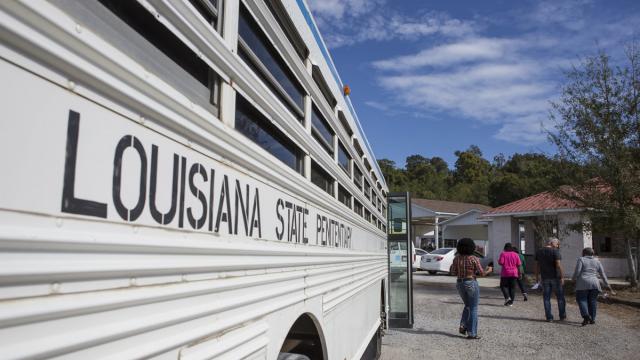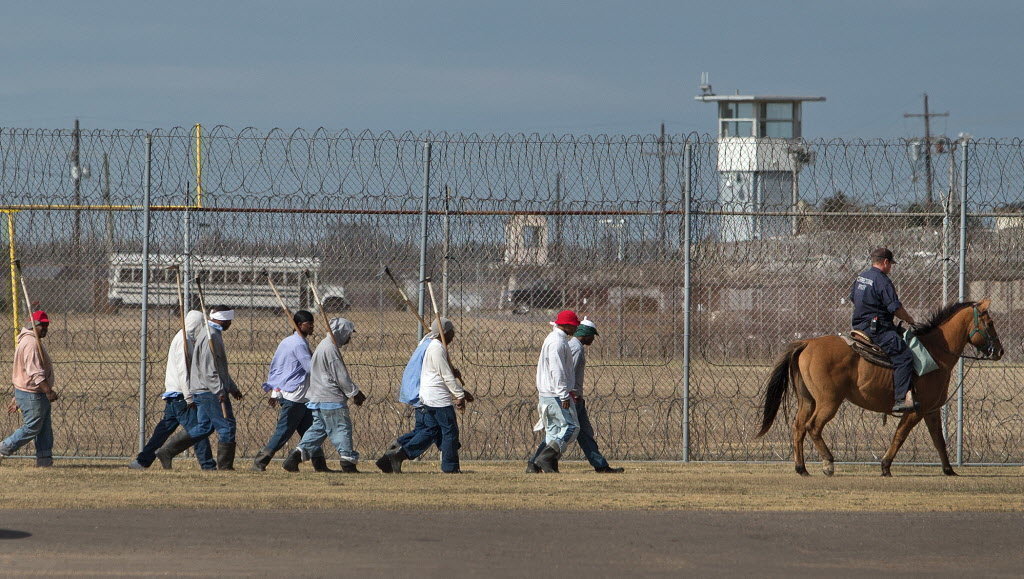
The terms Criminal Justice System and Deep South usually conjure up images from films like “Cool Hand Luke” or bring to mind the recent string of executions in Arkansas. But in Louisiana, the state is moving toward reforming its criminal justice system in order to reduce its prison population – and getting on board with the changes are many conservatives, including law enforcement officials.
In a recent op-ed on nola.com, Lafourche (pronounced La-Foosh) Parish Sheriff Craig Webre wrote, “We shouldn't incarcerate people just because they're poor. Or just because they're addicted. Or just because they don't have a home. But we've done that for way too long.”
Lafourche Parish, about an hour’s drive southwest of New Orleans, is a reliably conservative parish where more than three-quarters of voters voted for Donald Trump. Webre has served as sheriff of the parish for almost 25 years and was president of the National Sheriffs Association. Most of Webre’s op-ed focused on the report from the Louisiana Justice Reinvestment Task Force, formed in 2015 by the state legislature to study ways to reduce incarceration. Louisiana incarcerates more people per capita than any other state in the union.
According to the Task Force report, 8 percent of the state's population is incarcerated, yet this “tough on crime” approach has failed to reduce it. One-third of inmates released return to prison within three years. The leading categories of crimes resulting in incarceration are led by non-violent offenses such as opioid possession and distribution. State statutes allow for imprisonment for a first-time offense for possession of five to 30 years.
Other states in the Deep South began this reform earlier. South Carolina and Florida have roughly the same crime rate as Louisiana's, but Florida has three times less non-violent prisoners. Texas began reforming its criminal justice system in 2007. Since its implementation, Texas has been able to save money and its crime rate is down 30 percent over the same period. Texas uses the money saved to invest or re-invest in crime preventive measures or victims’ advocacy.
The money-saving aspect of these reforms has allowed some conservatives to get on board. Two prominent names, Koch Industries and Grover Norquist, have publicly stated their support for Louisiana to adopt reforms aimed at reducing its prison population.
“But what we see in a lot of ways is the criminal justice system is just another failed big government program. It picks winners and losers, and wastes a lot of money,” said Koch Industry executive Mark Holden to state lawmakers at a breakfast meeting in April.
In recent years, state funding has only been adequate enough to cover food and shelter for the state prison population. The task force’s report estimates Louisiana would save $9 million this year and $305 million over the next decade and would result in a 13 percent drop in prison population. The money could then be used to invest in workforce development and other rehabilitation programs and mental health facilities. In addition, funds could be used for victim services such as trauma counseling.
One of the more controversial elements of the task force’s report is to change the felony classification in Louisiana. As the state criminal code now stands, there are 626 different types of felonies, each with its own sentencing guidelines. In Louisiana, stealing a cell phone is a misdemeanor, carrying a maximum sentence of six months. However, possession of a stolen cell phone is a felony and can result in a sentence of 10 years.
(Earlier this month, Louisiana Senate Judiciary Committee members along with the governor hashed out a compromise with the District Attorneys Association in regards to sentencing guideline overhauls, agreeing to delay the reform until 2018. This was done in order for the bill to move out of committee.)
With Louisiana facing a budget crisis, conservatives in the state legislature are seeking for ways to balance the budget – a requirement under the state constitution – without raising taxes. While no one is liable to equate the Deep South with being pioneers of liberal criminal justice reforms for the 21st century, “lock ‘em up and throw away the key” legislation has not resulted in a safer society. Now lawmakers are finally being forced to address the costs of this failed strategy.
3 WAYS TO SHOW YOUR SUPPORT
- Log in to post comments













